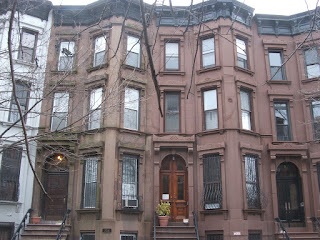Owner’s Use Proceedings – MICHELLE’S MONDAY MANDAMUS!
January 30, 2017
January 30, 2017: This Q&A post originally appeared on the LandlordsNY blog, where Michelle Maratto Itkowitz is the “Legal Expert”.
Hi, Michelle here. I am the LandlordsNY “Legal Expert”. My goal is to post in the blog all of the questions I get from LandlordsNY members (keeping the member anonymous) and my answers thereto, when I think that such questions and answers would be of interest to other people. Let me know if this is helpful. These questions are excellent, keep them coming.
Question: “I own a multifamily building. My apartments are Rent Stabilized. The building is owned by a limited liability company where I am the sole member. I would like to give one of those apartments to my son. It is my understanding that an owner of a building can vacate a stabilized apartment if the tenant is under 62. It is also my understanding that an apartment cannot be vacated if the building is owned by an LLC because of multiple names under the corporation. If I am the only shareholder of the LLC, can I take possession of an apartment? If not, do I have any other options?”
Answer:
In New York City, an individual owner of a building may recover one or more Rent Stabilized units for his own use of that of his family. New York City Administrative Code § 26-511(c)(9)(b); 9 NYCRR § 2524.4(a)(3). Note that this procedure cannot be utilized if a building is owned by a corporation or a limited liability company. THIS PROCEDURE CAN ONLY BE UTILIZED IF THE BUILDING IS OWNED BY AN INDIVIDUAL. You will need to transfer the building into your own name. Speak to your transactional lawyer and your insurance agent about this.
In order to recover a unit for owner’s use, the landlord must demonstrate a “good faith” intention to occupy the apartment for personal or familial use. New York City regulations further require that the unit constitute the owner’s or the immediate family member’s “primary residence in the City of New York.”
Understand that the Court WILL very likely grant tenant a deposition of you and your son. If your son is married, his spouse’s deposition will also be ordered. Your son and his spouse will have to testify, under oath, at a deposition and at trial, that they want to live in the apartment. They will also have to produce many paper records to back up their story. For example, if your son claims he wants to live in the apartment because it is closer to his college, he will have to produce records proving he is enrolled at the college.
“Disclosure is routinely granted in owner’s use cases…” Smilow v. Ulrich 11 Misc.3d 179, 182 (NY Cty. Civ. Ct. 2005). Courts have upheld the depositions of non-party witnesses. See 65 Central Park West, Inc. v. Greenwald, 127 Misc.2d 547, 551 (N.Y.Co. 1985) (tenant’s doctor deposed).
In other words – you absolutely CANNOT play around with this stuff. If you are asserting owner’s use you better be able to back it up. If your son owns and lives in an 8,000 s.f. mansion in Great Neck with his three kids, then it will be hard to convince the court that he wants a Rent Stabilized apartment if the unit is a studio. Moreover, you, your son, his spouse, etc. need to testify consistently with one another.
Some very brief examples follow, and are included to demonstrate how very fact specific these cases are.
· Pennella v. Joy, 79 A.D.2d 606, (2d Dep’t 1980) (Landlord did not prove good faith intent when there were five other empty apartments in six-unit building.)
· Horsford v. Bacott, 5 Misc. 3d 132(A), (App. Term 2004) aff’d, 32 A.D.3d 310, (1st Dep’t 2006) (“A finding of a lack of good faith is not mandated by either the claimed availability of another apartment in the building or any prior discord between the parties.”)
· Gussow v. Hornblower, 4 Misc. 3d 131(A), (App. Term 1st dept. 2004) (“A finding of lack of good faith is not mandated by either the claimed availability of the apartment or any prior discord between the parties. Nor is it fatal to the landlord’s otherwise persuasive owner use claim that at the time of trial her daughter-in-law was not actively pursuing her stated plan to attend business school—one of the factors specified in the underlying notice of nonrenewal in support of the landlord’s possessory claim. ‘Absolute synchronicity’ between the trial evidence and the allegations set out in a predicate notice is not required.”)
· Raffo v. McIntosh, 3 Misc. 3d 127(A), (App. Term 1st dept. 2004) (”Landlord’s claim that a second bedroom in tenants’ apartment is required to provide for a ‘live-in’ caretaker for the parents was negated by evidence that a back room in the parents’ own apartment—of the same or larger dimension—is equally suitable or adaptable for that purpose.”)
· Matter of Bath, DHCR Admin. Rev. Dckt. No. JK910174RT (5/30/96) (Landlord demonstrated requisite immediate and compelling necessity and good faith when landlord’s 21-year-old son slept on pull-out bed in landlord’s dining room, was in the process of starting his own business, and only tenant’s apartment had expiring lease with rent that the son could afford.)
You CAN do an owner’s use proceeding if the tenant is over 62. But unless the tenant is offered “equivalent or superior housing at the same or lower stabilized rent in a closely proximate area,” a landlord may not recover a unit for owner occupancy when the New York City Rent Stabilized tenant or the tenant’s spouse: is 62 years of age or older or suffers from an anatomical, physiological, or psychological impairment. New York City Administrative Code § 26-511(c)(9)(b); 9 NYCRR § 2524.4(a)(2). There is no owner-occupancy exemption for New York City Rent Stabilized tenants on the basis of long-term occupancy.
What landlords do sometimes to get these cases settled is they buy a co-op apartment in the neighborhood of the building and move the tenant, who is 62 or older, in to the co-op. The co-op is an investment which may well appreciate. Landlord has to be careful, however, of board requirements and sublet policies in the co-op.
For purposes of owner occupancy, an “anatomical, physiological, or psychological impairment” is defined as an impairment, other than addiction to alcohol, gambling, or controlled substances, demonstrable by standard diagnostic techniques and which is expected to be permanent and to prevent the tenant from engaging in substantial, gainful employment. New York City Administrative Code § 26-408(b)(1); 9 NYCRR § 2523.5(b)(4).
Once you win the case and your son moves in, he must stay there for three years, or else you can be penalized. If an owner refuses to renew a tenant’s lease pursuant to RSC 2524.4(a), for occupancy by owner or owner’s family, and if owner fails to utilize the housing accommodation for the purpose intended after the tenant vacates or to continue in occupancy for a period of three years, then penalties are imposed upon landlord pursuant to RSC 2524.4(a)(5).
Moreover, when your son leaves, the apartment will return to Rent Stabilization. Owner’s Use is only a temporary exemption. You still have to registered the apartment at DHCR while your son lives there as “temporarily exempt”.
Thank you for this question. Finally, I am obligated to say that this answer is for general informational purposes only, does not constitute legal advice, and does not create an attorney and client relationship between us or between you and LandlordsNY.
Let me know if you need anything else.
Michelle Maratto Itkowitz
Itkowitz PLLC
26 Broadway, 21st Floor
New York, New York 10004
(646) 822-1805







